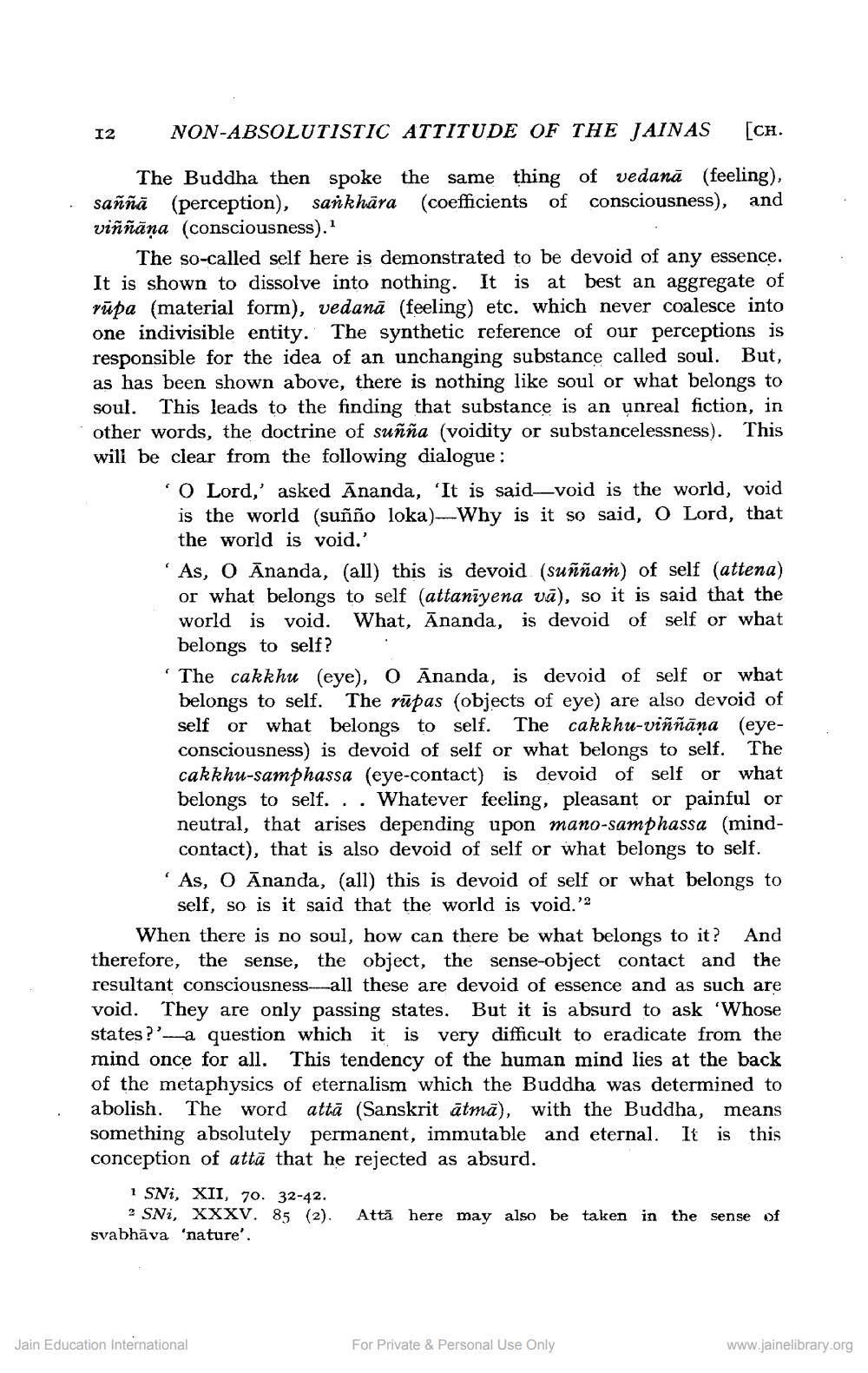________________
12
NON-ABSOLUTISTIC ATTITUDE OF THE JAINAS
[CH.
The Buddha then spoke the same thing of vedanā (feeling), saññā (perception), sankhära (coefficients of consciousness), and viññāņa (consciousness).'
The so-called self here is demonstrated to be devoid of any essence. It is shown to dissolve into nothing. It is at best an aggregate of rūpa (material form), vedanā (feeling) etc. which never coalesce into one indivisible entity. The synthetic reference of our perceptions is responsible for the idea of an unchanging substance called soul. But, as has been shown above, there is nothing like soul or what belongs to soul. This leads to the finding that substance is an unreal fiction, in other words, the doctrine of suñña (voidity or substancelessness). This will be clear from the following dialogue :
O Lord,' asked Ananda, 'It is said-void is the world, void is the world (suñño loka) --Why is it so said, O Lord, that
the world is void.' * As, O Ananda, (all) this is devoid (suññam) of self (attena)
or what belongs to self (attaniyena vā), so it is said that the world is void. What, Ananda, is devoid of self or what belongs to self? The cakkhu (eye), O Ananda, is devoid of self or what belongs to self. The rūpas (objects of eye) are also devoid of self or what belongs to self. The cakkhu-viññāna (eyeconsciousness) is devoid of self or what belongs to self. The cakkhu-samphassa (eye-contact) is devoid of self or what belongs to self. . . Whatever feeling, pleasant or painful or neutral, that arises depending upon mano-samphassa (mindcontact), that is also devoid of self or what belongs to self. As, O Ananda, (all) this is devoid of self or what belongs to
self, so is it said that the world is void.'? When there is no soul, how can there be what belongs to it? And therefore, the sense, the object, the sense-object contact and the resultant consciousness all these are devoid of essence and as such are void. They are only passing states. But it is absurd to ask 'Whose states?'-a question which it is very difficult to eradicate from the mind once for all. This tendency of the human mind lies at the back of the metaphysics of eternalism which the Buddha was determined to abolish. The word attā (Sanskrit ātmā), with the Buddha, means something absolutely permanent, immutable and eternal. It is this conception of attā that he rejected as absurd.
1 SNi, XII, 70. 32-42.
2 SNi, XXXV. 85 (2). Attā here may also be taken in the sense of svabhāva 'nature'.
Jain Education International
For Private & Personal Use Only
www.jainelibrary.org




